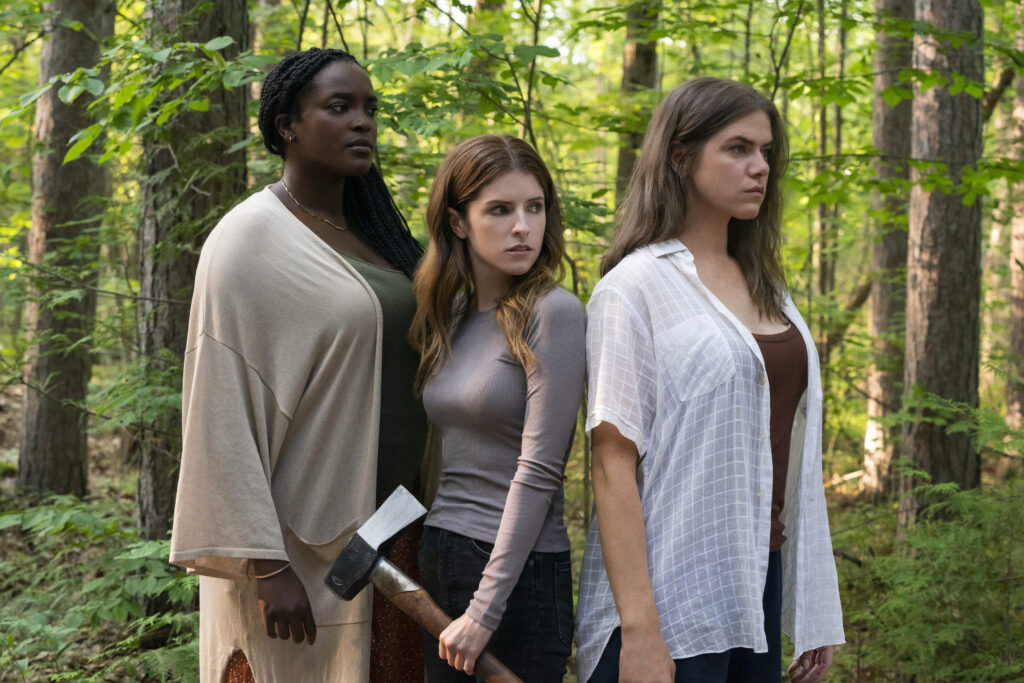Mary Nighy is a UK-based director who has directed episodes of “Industry,” a new series for HBO and Bad Wolf, and “Traces,” a new series for Red Productions. Nighy was the David Lean Scholar on the Directing Fiction Course at the National Film and Television School, and her short films have screened at festivals internationally.
“Alice, Darling” is screening at the 2022 Toronto International Film Festival, which is running from September 8-18.
W&H: Describe the film for us in your own words.
MN: “Alice, Darling” is about an accomplished young woman, Alice (Anna Kendrick), who seems to have her life in order, but when she’s invited to a lakeside cabin for a holiday with her two oldest friends her erratic behavior increasingly reveals that she is under enormous strain and in deep denial about her controlling partner, Simon.
Just as the friends are able to remind Alice of who she was before her relationship began, Simon arrives at the lake, and tries to bring Alice back to the city.
W&H: What drew you to this story?
MN: “Alice, Darling” felt like an important story to tell right now – about the degree to which women can lose themselves in murky sexual relationships, without even realizing how far they’ve lost their sense of self or their bearings. And I thought it could be a powerful paean to the value and redemptive qualities of friendship between women – in all their messy, sometimes rivalrous, sometimes sisterly, glory.
W&H: What do you want people to think about after they watch the film?
MN: I’m keen on the audience dwelling on the ambiguities of the relationships, and to reflect on the idea that abuse comes in many forms.
W&H: What was the biggest challenge in making the film?
MN: Time. We had 20 days to shoot it in, which isn’t much for a feature, and the Covid protocols in place at the time added to the battle to get it shot in the allotted days.
W&H: How did you get your film funded? Share some insights into how you got the film made.
MN: The film was financed by Lionsgate U.S., and Elevation and Ontario Creates in Canada.
W&H: What inspired you to become a filmmaker?
MN: I’ve been sat in rehearsal rooms and on film sets since before I could talk, and I always wanted to be the person telling the story.
W&H: What’s the best and worst advice you’ve received?
MN: Best advice: As the director, you have to make a decision there and then, in order for everyone else to do their jobs, so if you’re asked whether the set door should open inwards or outwards, and you don’t know, it doesn’t matter. Just make a decision.
Worst advice: I don’t know if it’s advice, but when I was in my 20s so many people in the industry told me over and over how difficult it would be to direct as a woman, because of prejudice or ideas about what women could and couldn’t do. They were just trying to be helpful, but it made me feel as though they were telling me it was impossible. And nothing so far has warranted the doom and gloom of those early warnings.
W&H: What advice do you have for other women directors?
MN: Make what you want to make. “Women director” is a broad category, and it shouldn’t define your work or your dreams. If we said “male director” was a category, people would find it risible. My favorite women directors include Claire Denis and Kathryn Bigelow and those two directors are as different from each other as they would be from any of their male contemporaries. There isn’t a subject or a style for “women directors” to pursue.
My other piece of advice is sometimes politeness can be a weapon. But I would say that – I’m English.
W&H: Name your favorite woman-directed film and why.
MN: “Lore” by Cate Shortland. It’s about the teen daughter of an SS officer fleeing across war-ravaged Germany at the end of WWII, bringing her baby brother and sisters with her. On the way, she is rescued by a young Jewish man who seems to have been liberated from one of the camps, when he pretends to be her older brother to get her past an Allied checkpoint. He’s everything she’s been taught to hate but she desires him in spite of herself. It’s the most brilliant study of coming of age and sexual self-discovery at the moment of a country’s collapse.
W&H: What, if any, responsibilities do you think storytellers have to confront the tumult in the world, from the pandemic to the loss of abortion rights and systemic violence?
MN: Storytellers can make the truth more palatable. They can find a way to make issues live and breathe through characters and stories, and in doing so, highlight subjects which are otherwise too hard or inconvenient for us to dwell on — or simply far from our daily lives. However, I don’t think you can mandate art. Of course we have to respond to the world around us, but we also have to be encouraged to dream about realities beyond this one, too.







